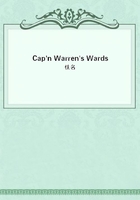
第39章
Captain Elisha was very far from considering himself a Solomon. As he would have said he had lived long enough with himself to know what a lot he didn't know. Nevertheless, deep down in his inner consciousness, he cherished a belief in his judgment of human nature. This judgment was not of the snap variety; he took his time in forming it. People and their habits, their opinions and characters, were to him interesting problems. He liked to study them and to reach conclusions founded upon reason, observation, and common sense. Having reached such a conclusion, it disturbed him when the subjects of the problem suddenly upset the whole process of reasoning and apparently proved him wrong by behavior exactly contrary to that which he had expected.
He had been pretty well satisfied with the result of his visit to young Dunn at the latter's office. Malcolm had surrendered, perhaps not gracefully or unconditionally, but he had surrendered, and the condition--secrecy--was one which the captain himself had suggested. Captain Elisha's mental attitude toward the son of the late Tammany leader had been a sort of good-natured but alert tolerance. He judged the young man to be a product of rearing and environment. He had known spoiled youths at the Cape and, in their surroundings, they behaved much as Malcolm did in his. The same disrespect to their elders, the same cock-sureness, and the same careless indifference concerning the effect which their actions might have upon other people--these were natural and nothing but years and the hard knocks of experience could bring about a change.
Elkanah Chase, country swell and pampered heir to the cranberry grower's few thousands, and Malcolm Dunn, idol of his set at the Metropolitan Club, were not so very different, except in externals.
The similarity confirmed his opinion that New York was merely South Denboro many thousand times magnified.
He knew how young Chase had behaved after an interview not unlike that just described. In Elkanah's case several broken windows and property destroyed on a revel the night before the Fourth had caused the trouble. In Malcolm's it was an automobile. Both had listened to reason and had knuckled under rather than face possible lawsuits and certain publicity. Chase, however, had sulkily refused to speak to him for a month, and regained affability merely because he wished to borrow money. According to the captain's deduction, Dunn should have acted in similar fashion. But he didn't; that was the odd part of it.
For Malcolm, when he next called, in company with his mother, at the Warren apartment, was not in the least sulky. Neither was he over effusive, which would have argued fear and a desire to conciliate. Possibly there was a bit more respect in his greeting of the new guardian and a trifle less condescension, but not much.
He still hailed Captain Elisha as "Admiral," and was as mockingly careless as ever in his remarks concerning the latter's newness in the big city. In fact, he was so little changed that the captain was perplexed. A chap who could take a licking when he deserved it, and not hold malice, must have good in him, unless, of course, he was hiding the malice for a purpose. And if that purpose was the wish to appear friendly, then the manner of hiding it proved Malcolm Dunn to possess more brains than Captain Elisha had given him credit for.
One thing seemed sure, the Dunns were not openly hostile. And Caroline was. Since the interview in the library, when the girl had, as she considered it, humiliated herself by asking her guardian for money to help the Moriartys, she had scarcely spoken to him. Stephen, taking his cue from his sister, was morose and silent, also. Captain Elisha found it hard to forgive his dead brother for bringing all this trouble upon him.
His lawyers, so Sylvester informed him, were setting about getting Rodgers Warren's tangible assets together. The task was likely to be a long one. The late broker's affairs were in a muddled state, the books were anything but clear, some of the investments were foreign, and, at the very earliest, months must elapse before the executor and trustee could know, for certain, just how large a property he was in charge of.
He found some solace and forgetfulness of the unpleasant life he was leading in helping the stricken Moriarty family. Annie, the maid at the apartment, he swore to secrecy. She must not tell Miss Caroline of his visits to her parents' home. Doctor Henry, also, though he could not understand why, promised silence. Caroline herself had engaged his services in the case, and he was faithful.
But the patient was more seriously hurt than at first appeared, and consultations with a specialist were necessary.
"Goin' to be a pretty expensive job, ain't it, Doctor?" asked the captain of the physician.
"Rather, I'm afraid."
"All right. If expense is necessary, don't be afraid of it. You do just what you'd ought to, and send the bill to me.""But Miss Warren insisted upon my sending it to her. She said it was a private matter, and one with which you, as her guardian, had nothing to do.""I know. Caroline intends to use her own allowance, I s'pose.